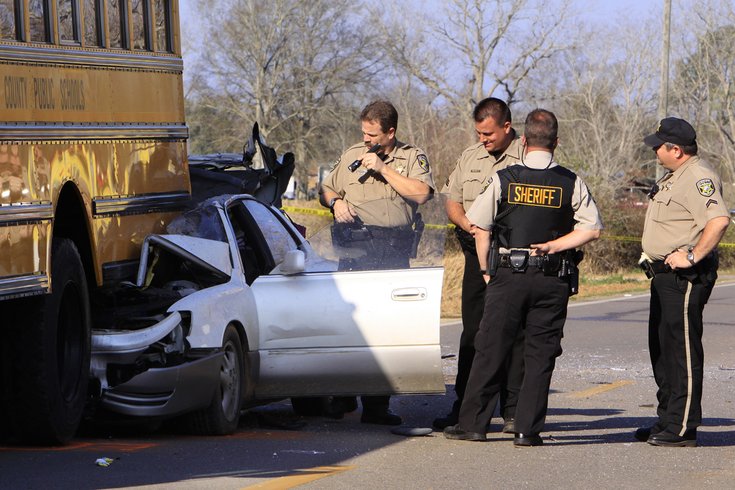
June 08, 2015
 Michelle Rolls/AP
Michelle Rolls/AP
Sheriff deputies examine a car involved in an early morning accident that killed a 16-year-old girl who was behind the wheel. For teens in the US, motor vehicle crashes remain the number one cause of death
Nearly half of teen drivers who got their license within three months crashed under simulated driving conditions, researchers found.
This stark statistic is the result of a study published in the journal Injury Prevention by a team of researchers at The Children’s Hospital of Philadelphia and the University of Pennsylvania.
Using a decade of foundational research regarding young driver crashes and over five years of research, the team created and put to use a 35-minute simulator-based driver assessment that is able to differentiate between skilled and unskilled drivers.
During the driving assessment, which incorporates 22 variations of the most common ways teen drivers crash, nearly 43 percent of teens who got their license within three months crashed at least once. For licensed, experienced adult drivers, that percentage was 29 percent.
Although the novice teen drivers were adept at basic driving skills, such as using turn signals, the more advanced skills, such as braking in hazardous situations proved challenging, the study found.
The most common types of crashes involve left turns, rear-end events, and running off the road, the study found.
"We're providing the science behind the answer to why teens – and some adults – don't drive well,” said Flaura K. Winston, scientific director of the Center for Injury Research and Prevention at CHOP and the principal investigator for the Simulated Driving Assessment research.
“If we can identify driving skill deficits in a safe, simulated environment, then we can tell families and driving instructors what to focus on during supervised practice drives or how to help those with citations or crashes who are already licensed," added Dr. Catherine McDonald, author of the study and a teen driver safety researcher at the University of Pennsylvania.
“When teens crash, we need to diagnose what went wrong and remediate it."